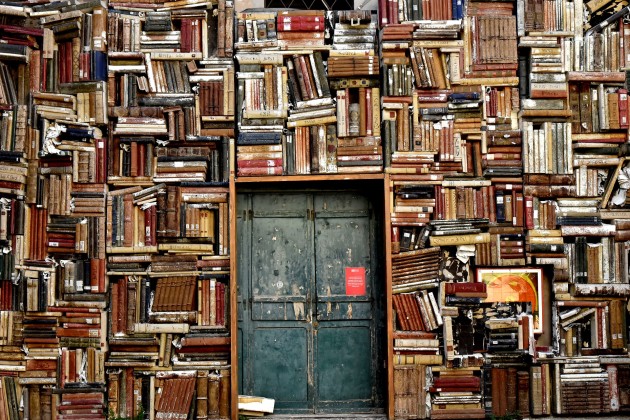The Lilith Blog 1 of 2
May 11, 2017 by Sarah M. Seltzer
On the Importance of Being Women of the Books
 Every day we get further into this madness that is the Trump Administration, the pile of books on my windowsill grows. Never mind that I have no room in my apartment for them, that I had switched to an e-reader several years ago in an effort to keep my shelves from overflowing. All that decluttering effort is officially over. Now I am collecting them like talismans: essays, writers on writing, novels and more novels. As a harried working mom, I have almost no time to read except my commute, but I am slowly making my way through the pile, even as I add to it.
Every day we get further into this madness that is the Trump Administration, the pile of books on my windowsill grows. Never mind that I have no room in my apartment for them, that I had switched to an e-reader several years ago in an effort to keep my shelves from overflowing. All that decluttering effort is officially over. Now I am collecting them like talismans: essays, writers on writing, novels and more novels. As a harried working mom, I have almost no time to read except my commute, but I am slowly making my way through the pile, even as I add to it.
If the apocalypse comes, which it looks like it might, I will be buried in a pile of new releases.
Unlike newspaper articles, tweets, and cable news which agitate us with a certain kind of harsh everyday truth, books allow us to see darkness, but through a softer lens of imaginary experience. The act of reading requires our active participation, which makes us feel less desperate. Books are nuanced, empathetic, complex, everything the government isn’t right now. Reading them reminds us about the parts of the world that are worth saving—like looking at our kids or walking among the cherry blossoms.
To be more prosaic, books are also clearly an object that our president has never touched.
Jews are people of the book—this we know, we’re told constantly— but so are women; women buy and read fiction (by men and women) and form book clubs and through magazines like Lilith, keep modern literature alive. In return we are often left off of lists for prizes and committee, our books considered domestic fare while men write sweeping family sagas.
So it goes. Yet women’s contribution to literature offers us something deeper. When composing a list of books for Lilith to carry us through this darkest of times, I thought about heroines, both writers and characters, who are flawed but offer that glimpse of hope. The women on my list, Grace Paley, Ellen Willis, Emma Goldman, Vivian Gornick, Alice Walker, Cheryl Strayed are activists, memoirists, sharp critics, and adventurers. Their books are the kind that we pass on to our girlfriends, moms, and yes, our sons and dads and everyone in between, too, and say: “read this.”
If there’s a common thread in the content of the books I chose, (ok, with the exception of the one Philip Roth title) it’s that great women writers know how to write stories honestly about the dark reality of this existence, from addiction to racism to abuse and violence, but can also offer a blueprint of comfort and resistance.
Our enemies arm themselves with ignorance, but we can arm ourselves with wisdom. And that’s why we must keep reading books (and magazines like Lilith!) in between the rallies, because like nothing else, reading comforts us and shores up our courage.
Sarah Seltzer is a writer in New York, a regular contributor to Lilith, and the editor of Jewish parenting site Kveller.com.
The views and opinions expressed in this article are the author’s own and do not necessarily reflect those of Lilith Magazine.
 Please wait...
Please wait...